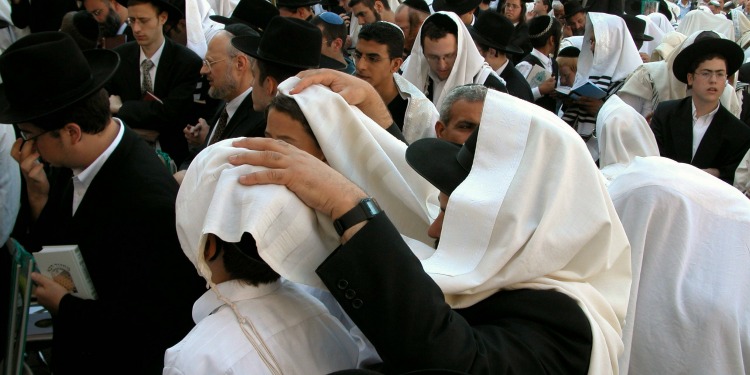Fill Up On Love
The Fellowship | February 21, 2019

He blessed them that day and said,
“In your name will Israel pronounce this blessing:
‘May God make you like Ephraim and Manasseh.'”
So he put Ephraim ahead of Manasseh. — Genesis 48:20
In Hebrew, the word for love is ahava, which comes from the root word, hav, “to give.” In Judaism, to love is to give. Giving to others forms the connection that enables us to love one another. Join us this month, as we offer a devotional series exploring the Jewish perspective on love.
In today’s Bible verse, history almost repeats itself. It comes very close, and if we didn’t know better, we would probably predict a different outcome to this story. But instead, a pattern is broken — a pattern of jealousy, anger, and brotherly strife.
First there were Isaac and Ishmael. Although Isaac was younger, he received Abraham’s blessing and continued his legacy. Next there were Jacob and Esau. Similarly, Jacob, the younger brother, received the greater blessings. Then there were Joseph and his older brothers – a story of jealousy and rivalry that led to the near-death of Joseph and his being sold into slavery.
This week, we read about the next generation. Ephraim and Manasseh were Joseph’s sons. As Jacob’s life came to an end, Joseph brought them to be blessed. Joseph helped his father put his hands on the children’s heads. The right hand on the elder, Manasseh, and the left hand on the younger, Ephraim. The right hand meant a stronger blessing, fitting for the elder son. But Jacob switched his hands intentionally. He explained to Joseph that the younger would be greater than the elder, and so he gave Ephraim the greater blessing.
We might expect this to lead to another sibling rivalry. At the very least, we would expect Manasseh to be devastated, if only internally. And yet, the Jewish sages teach us that Manasseh held not a bit of animosity toward his brother. Not one ounce of jealousy – not during the blessing, nor afterward. This was why Jacob further blessed the two boys by proclaiming that all of Israel would bless their children by their names. Even today, on every Sabbath, we bless our boys to be like Ephraim and Manasseh – without strife and with total brotherly love.
However, we must ask how Manasseh was able to maintain that brotherly love in the first place? We might understand, and even expect, that he would have learned from his family’s history not to act on his feelings of hurt and jealousy. However, Manasseh was human, with feelings and natural inclinations. How is it that he didn’t even feel a little bit jealous?
The rabbis explain with an analogy. Imagine an empty cup. Fill it up halfway with water, and there is plenty of room to add anything else – even poison. However, fill a glass to the top, and there is no room for anything else.
Manasseh was so full of love for God that there was no room for anything else. He was so full of gratitude that there was no room for jealousy. We need to be the same way. Fill yourself with God’s love, and there’ll be no space for anything else.
